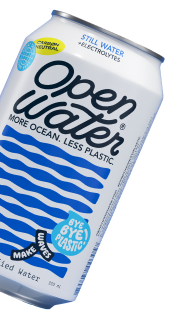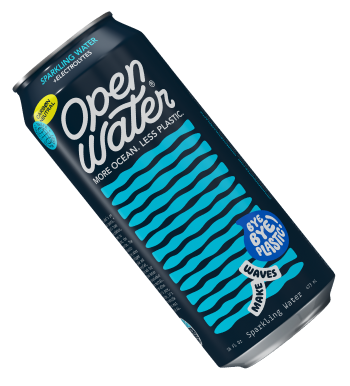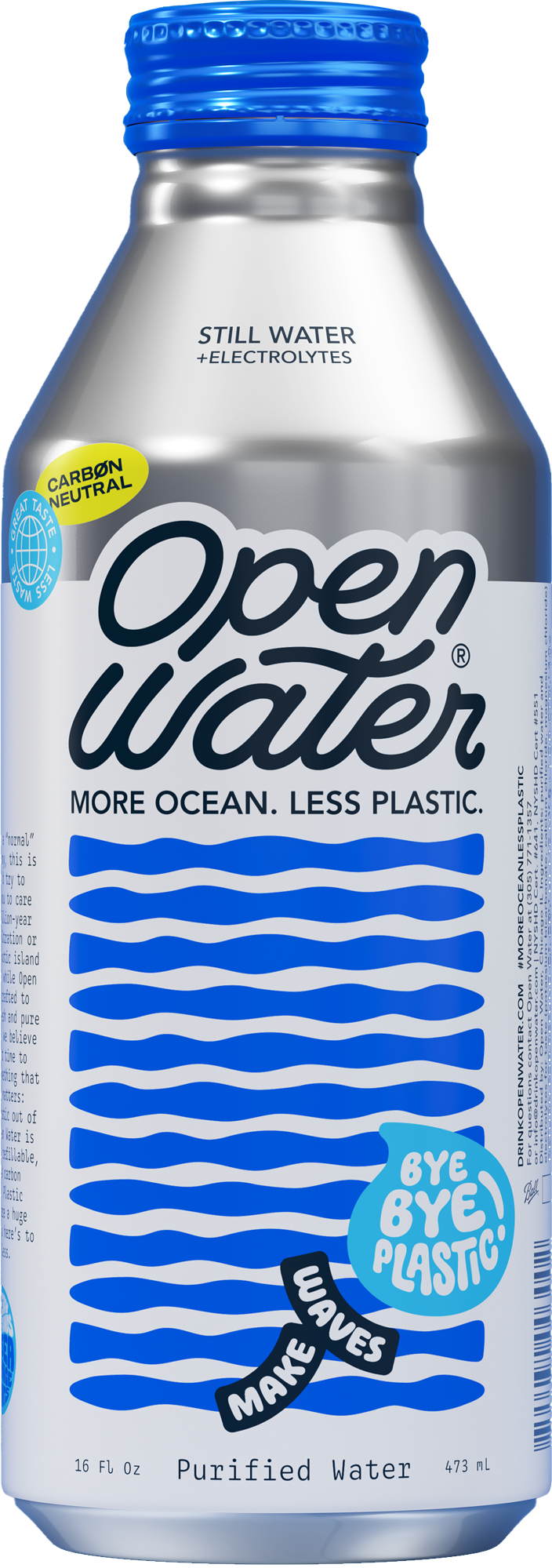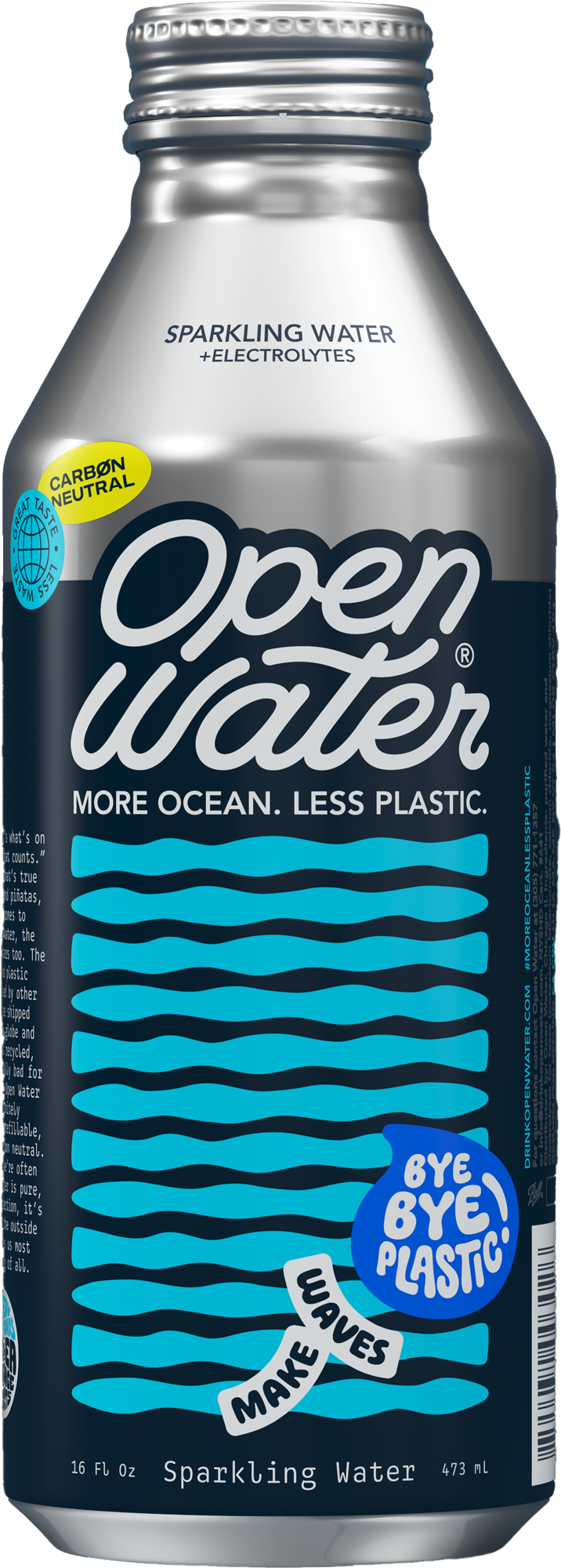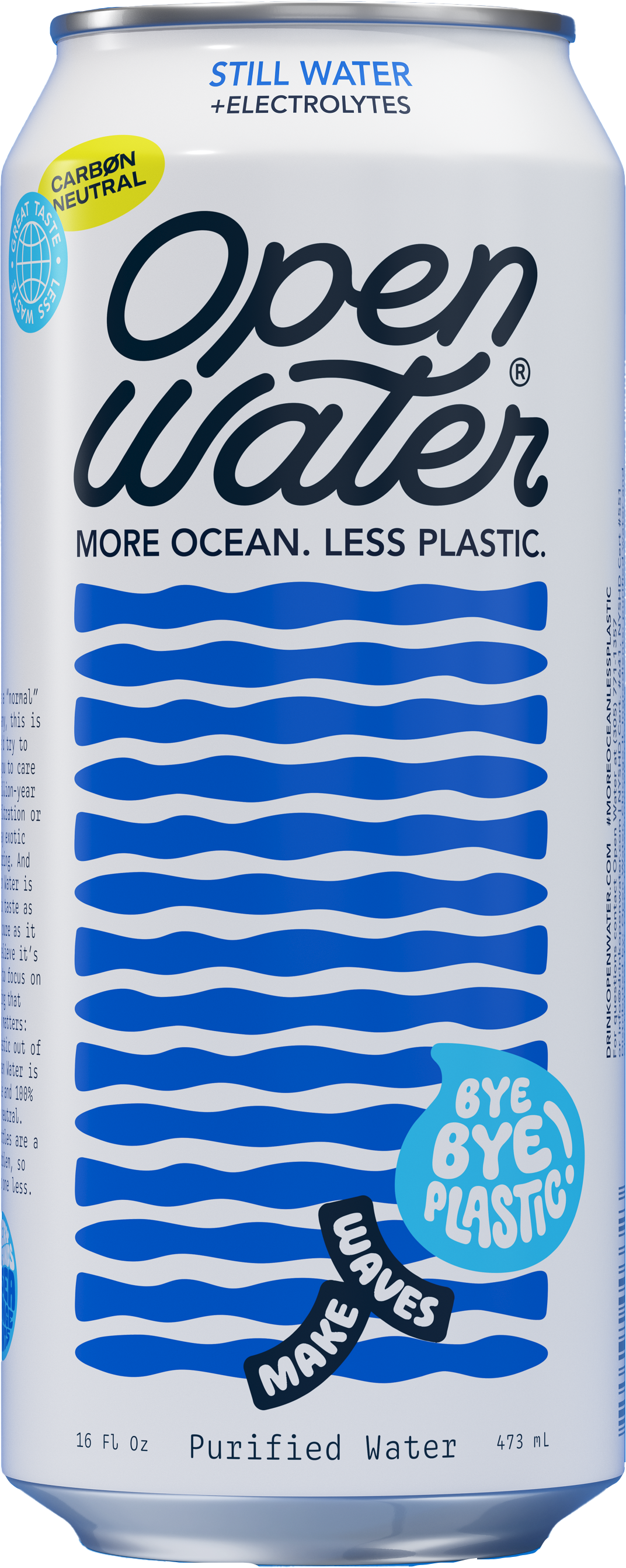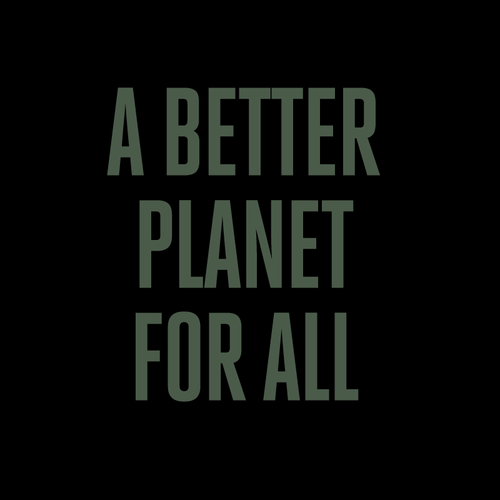Creating a better planet for all is at the heart of what we're doing and why we're doing it.

My name is Jess, and I’m one of the founders of Open Water. The devastating amounts of plastic pollution in our oceans caused in no small part by the bottled water industry made us want to do something. We were inspired to create an imperfect but pragmatic and easily adoptable solution to protect our oceans and our planet from the harm caused by plastic waste. This was 10 years ago, and seeing the conversation around plastics become more mainstream and energized than ever before, fills us with hope for a better, more circular future.
These days, though, we’re asking ourselves how that initial mission towards sustainable solutions intersects with the issue of race and equality. Clean air, water, and access to nature are critical for all humankind, and yet, Black and Brown communities are largely unrepresented on these issues and therefore underserved. As we’re working towards solutions for our planet, it’s also important to consider which groups of people will be negatively affected by the climate crisis first, and worst...because the truth is that we are not all bearing the burden equally.
White people enjoy an air pollution advantage. That is, they contribute the majority of the pollution but generally escape the effects of the damage. Hispanic and Black communities bear the brunt of air pollution, which matters because particulate matter contributes to 63% of environment-related fatalities in the U.S. each year—that’s 100,000 deaths.
Who is creating air pollution, and who is breathing it in: Pollution causation and exposure among U.S. racial-ethnic groups.
 Source: Tessum et al., 2019
Source: Tessum et al., 2019
Another recent study from 2018 (Nesbitt et al., 2018) found that communities of color have less access to nature areas, including parks. “Residents with higher levels of education and higher incomes [are] more likely to have more access to [green spaces], and racialized residents [are] less likely to have access to mixed and woody vegetation in large, dense urban areas.” In other words, the more White people in a neighborhood, the better access to parks there tends to be. As has been well-documented: green space quells the urban heat island effect and helps to absorb carbon dioxide, a leading pollutant.
Human rights scholar Philip Alston explains, “We risk a ‘climate apartheid’ scenario where the wealthy pay to escape overheating, hunger, and conflict while the rest of the world is left to suffer.”
It’s clear that the racial inequality crisis is intertwined with our climate crisis, just as the ocean is critically intertwined with our climate crisis. And while it’s always been internally understood, we’re explicitly re-committing to Environmental Justice by formally updating our mission statement:
OPEN WATER AIMS TO CREATE HEALTHIER OCEANS AND A BETTER PLANET FOR ALL.
We think a diverse team serves as a great starting point to ensure we’re working towards this mission. Studies have proven time and time again how valuable a diversity can be, and while our company is small right now, our team includes quite a bit of representation from minority groups. We’re women- and LGBT-founded, and our team of 8 is 88% women, 25% Hispanic, and 25% Indian American.
Here are just a few more things we can take action on right away to put that mission further into practice:
-
Ensure we are allies to people of color and those working towards Environmental Justice.
-
Continue to organize beach clean ups with a focus in Black and Hispanic communities, which are often overlooked.
-
Conduct voter registration at all cleanup events to encourage political change that considers Environmental Justice.
If you want to get involved or learn more about Environmental Justice, check out this instagram post from Leah Thomas full of activists you can follow.
